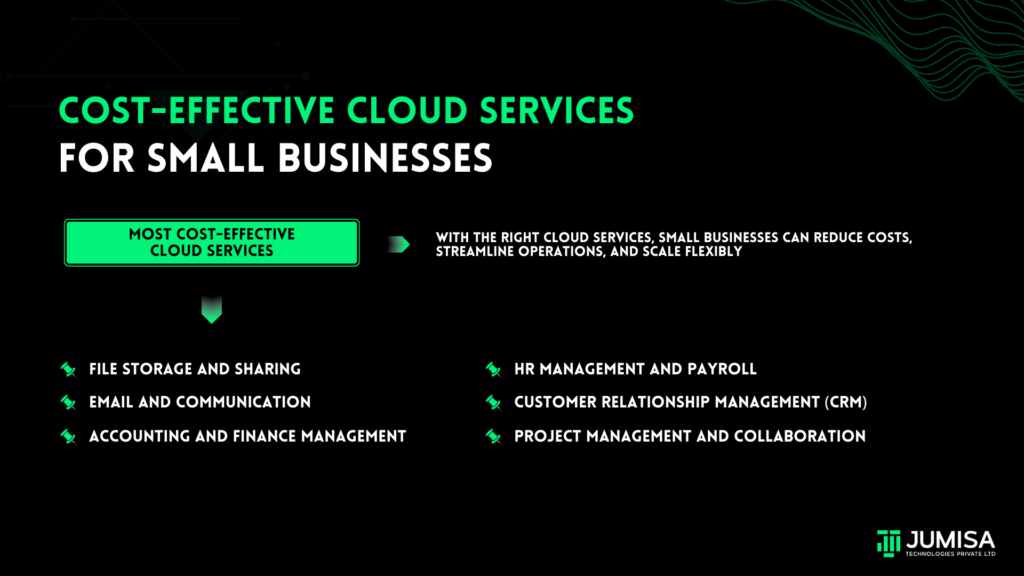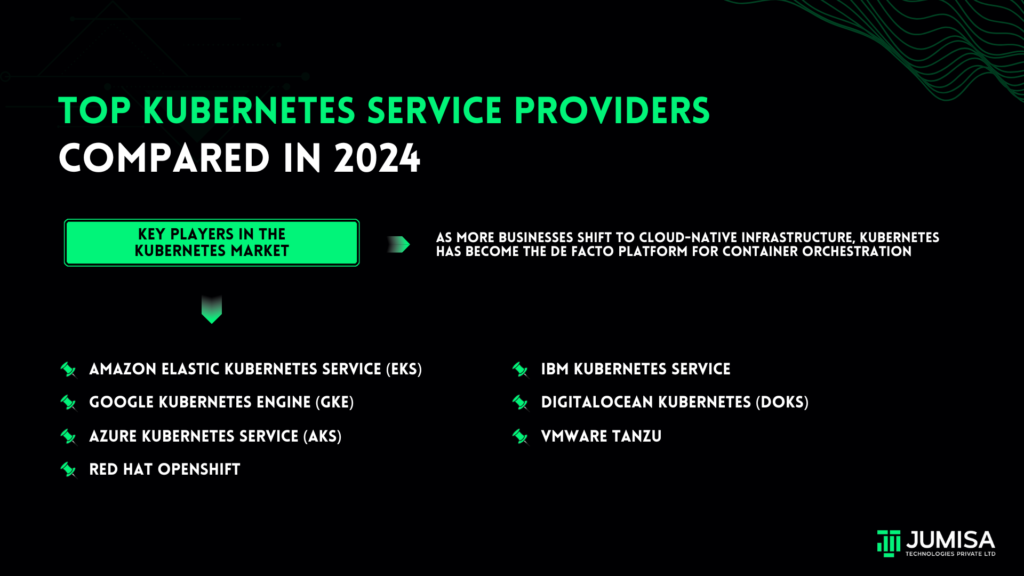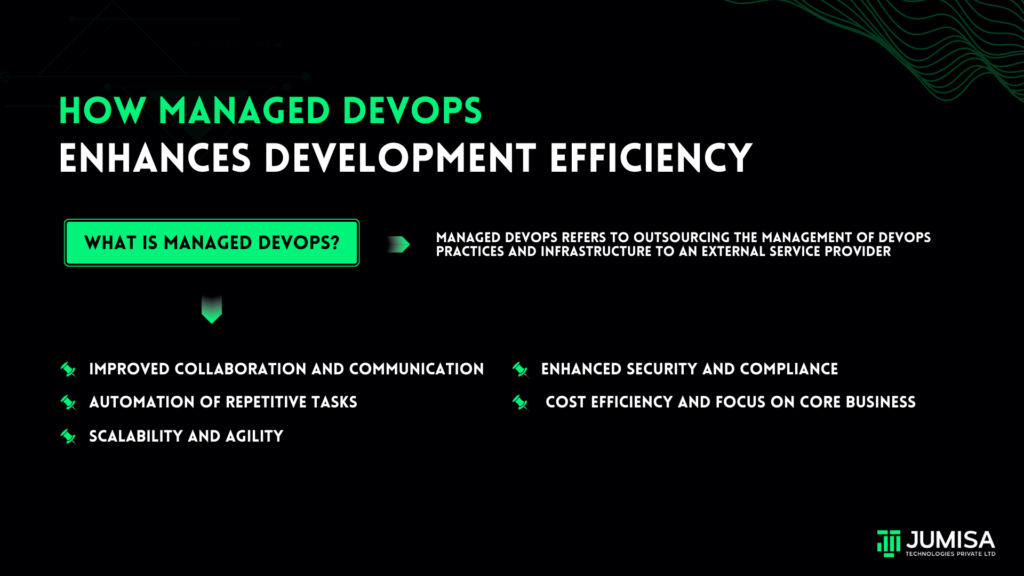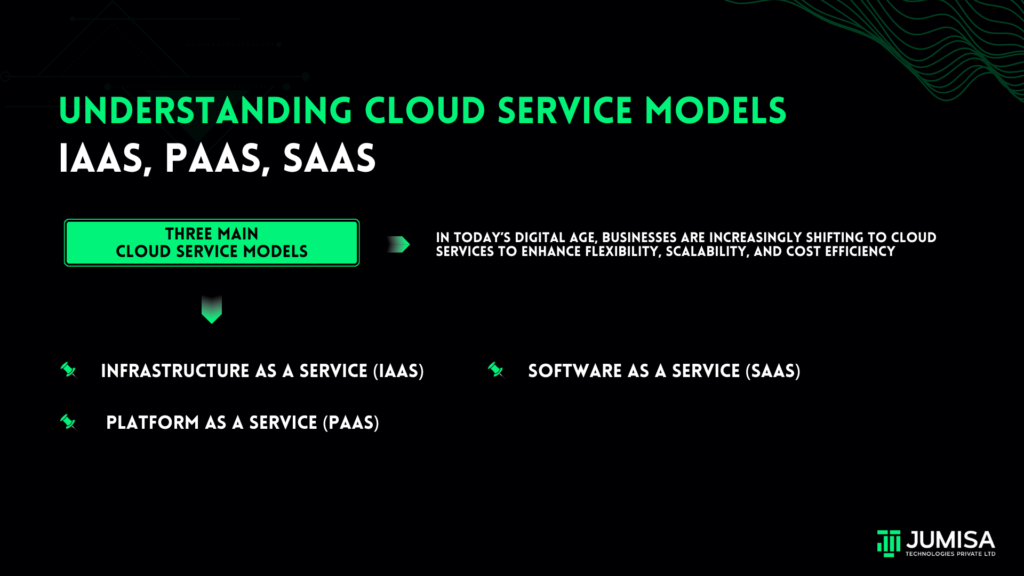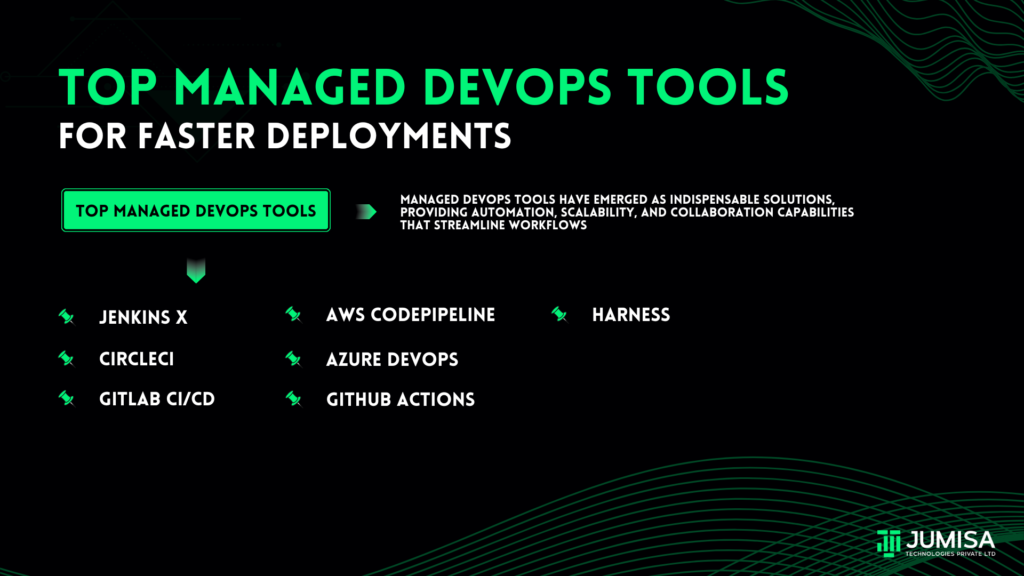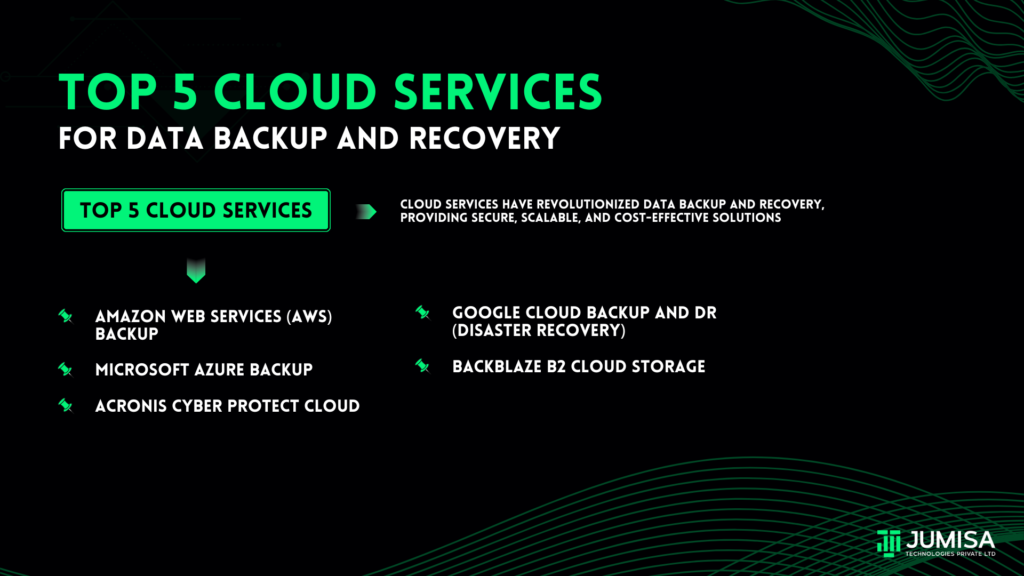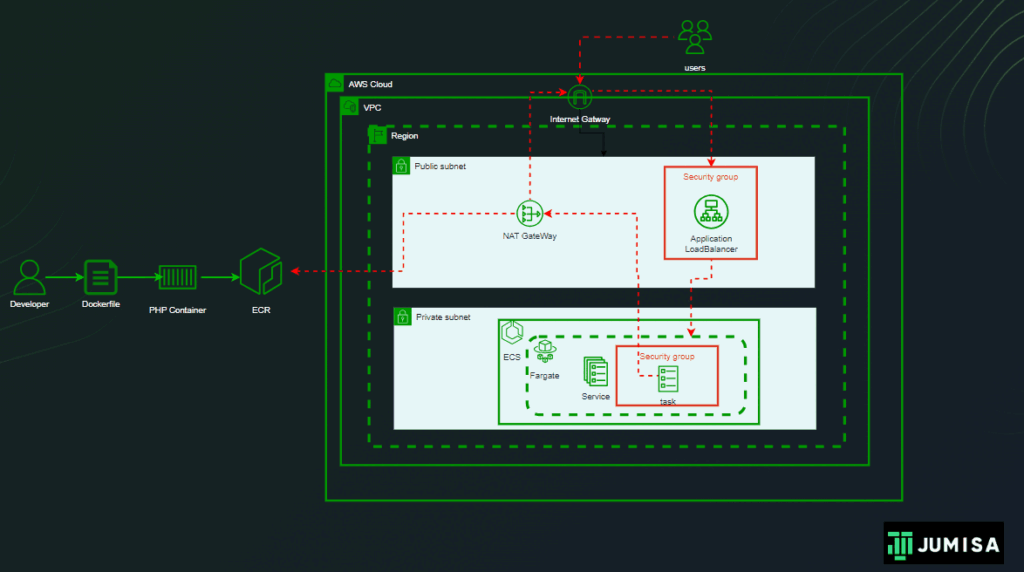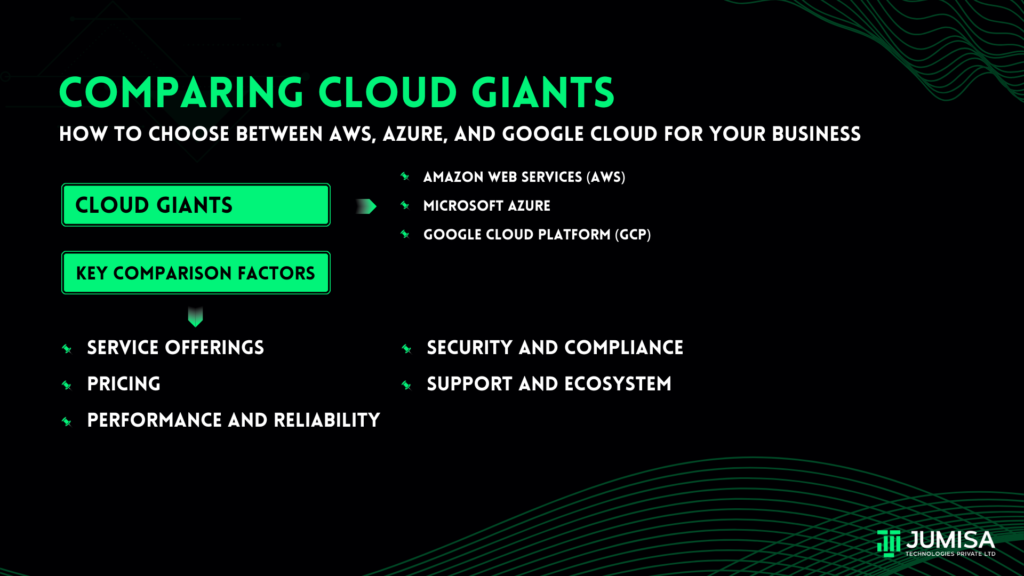
In today’s rapidly evolving digital landscape, cloud computing has become the backbone of modern business infrastructure.
Three giants dominate the cloud market: Amazon Web Services (AWS), Microsoft Azure, and Google Cloud Platform (GCP).
Each offers a robust set of features, making the choice challenging for businesses looking to leverage the cloud.
Here’s a comprehensive comparison to help you make an informed decision for your business.
Overview of the Cloud Giants
- Amazon Web Services (AWS)
Launched in 2006, AWS is the oldest and most comprehensive cloud service provider. It offers a vast array of services, including computing power, storage options, and extensive developer tools. AWS is renowned for its scalability, flexibility, and global reach, with data centers in numerous regions worldwide.
- Microsoft Azure
Microsoft Azure entered the market in 2010 and has rapidly grown to become a formidable competitor to AWS. Azure integrates seamlessly with Microsoft’s software ecosystem, making it an attractive option for businesses already using Microsoft products. Azure is known for its hybrid cloud capabilities, allowing businesses to manage and deploy applications across both on-premises and cloud environments.
- Google Cloud Platform (GCP)
Google Cloud, introduced in 2008, is known for its data analytics, machine learning, and artificial intelligence capabilities. GCP leverages Google’s expertise in these areas, offering advanced tools for businesses looking to harness the power of big data. GCP is also praised for its commitment to open-source technologies and robust security features.
Key Comparison Factors Between Different Clouds
1. Service Offerings
- AWS: AWS provides the most extensive range of services, with over 200 services spanning computing, storage, databases, machine learning, and more. This breadth makes AWS suitable for businesses of all sizes and industries.
- Azure: Azure’s service portfolio is also vast, with strong offerings in AI, machine learning, IoT, and enterprise applications. Azure’s integration with Microsoft products like Office 365, Dynamics 365, and Windows Server is a significant advantage.
- GCP: GCP excels in data analytics and machine learning services, offering powerful tools like BigQuery and TensorFlow. While its service range is slightly narrower than AWS and Azure, GCP is rapidly expanding its offerings.
2. Pricing
- AWS: AWS’s pricing model is complex, with numerous options depending on usage patterns, reserved instances, and spot instances. AWS often offers the best pricing for high-volume workloads but can become expensive for smaller, less optimized operations.
- Azure: Azure pricing is generally competitive with AWS, and Microsoft offers discounts for customers who commit to long-term usage. Azure’s hybrid cloud solutions can also lead to cost savings for businesses with existing on-premises investments.
- GCP: GCP often positions itself as a cost-effective alternative, with a straightforward pricing model and sustained-use discounts. GCP is particularly cost-competitive for data analytics and machine learning workloads.
3. Performance and Reliability
- AWS: AWS has a well-established global network of data centers, offering high availability and low latency. Its mature infrastructure ensures reliable performance for a wide range of applications.
- Azure: Azure also boasts a global network, with a strong presence in regions like North America, Europe, and Asia. Azure’s service level agreements (SLAs) are competitive, ensuring reliable performance and uptime.
- GCP: GCP’s network benefits from Google’s extensive global infrastructure, which is optimized for high-speed performance. GCP’s focus on high-performance computing and data-intensive applications ensures robust performance.
4. Security and Compliance
- AWS: AWS has a comprehensive security model and a wide array of compliance certifications, making it suitable for industries with stringent regulatory requirements. AWS’s security tools and services are extensive, supporting a high level of customization.
- Azure: Azure places a strong emphasis on security, with numerous compliance certifications and integrated security tools. Its identity and access management capabilities, through services like Azure Active Directory, are particularly robust.
- GCP: GCP is known for its security-first approach, leveraging Google’s security expertise. GCP offers a range of security tools and complies with major industry standards, making it a reliable choice for security-conscious businesses.
5. Support and Ecosystem
- AWS: AWS has a vast ecosystem of partners, third-party integrations, and a large developer community. Its support options are extensive, ranging from basic support to premium enterprise-level support.
- Azure: Azure’s support is integrated with Microsoft’s broader support services, providing a seamless experience for businesses using multiple Microsoft products. Azure’s partner network and ecosystem are also extensive.
- GCP: GCP’s support and ecosystem are growing, with a focus on open-source communities and third-party integrations. Google’s emphasis on innovation ensures a continuously evolving platform.
Conclusion
Choosing between AWS, Azure, and GCP depends on your business needs, existing technology stack, and long-term goals. AWS is ideal for businesses needing a comprehensive, scalable solution with a vast array of services. Azure is a strong choice for those already invested in Microsoft technologies or requiring hybrid cloud capabilities. GCP is perfect for businesses focused on data analytics, machine learning, and innovative technology solutions. Evaluate your specific requirements, budget, and strategic objectives to determine which cloud giant aligns best with your business. Each platform offers a unique set of strengths, ensuring that, regardless of your choice, you’ll be well-equipped to leverage the power of cloud computing.

